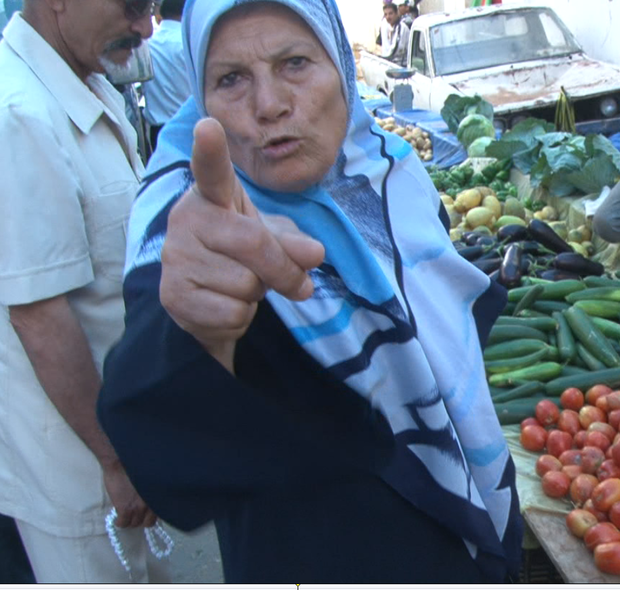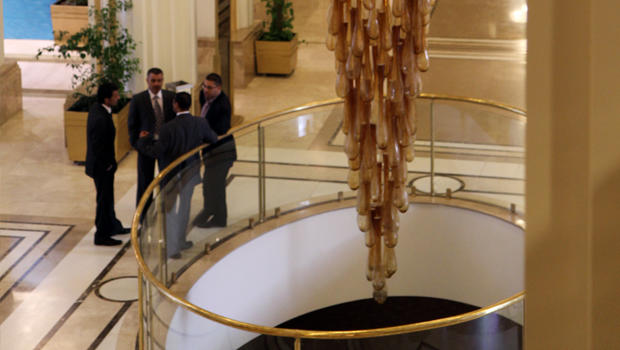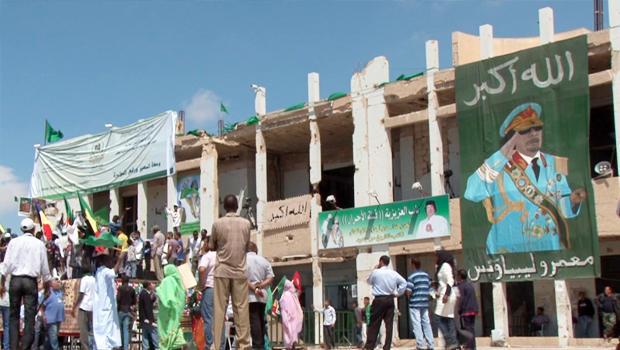Reporter's notebook: Behind the scenes in Libya
CBS News correspondent Allen Pizzey files a behind the scene's look at maneuvering through Libya.
TRIPOLI, Libya -- Travel around enough as a foreign correspondent and you encounter so many eccentric and downright crazy things that after a while no matter what comes up it seems to be variations on a theme.
And then you come to Libya.
This is a county that adds a new level of meaning to anomaly.
It started at the border. It is several hundred yards from the place where the enterprising little Tunisian man with a half-broken porter's trolley had to dump our gear to where we'd be picked up by our Libyan minders. Given that we're a TV crew from a country that is part of the coalition bombing them, and the regime they have grown up under and serve constantly preaches that we lie, it's reasonable to expect if not harsh, at least stern treatment from the border guards.
Instead, the AK-47 toting men who greeted us commandeered a pickup truck passing through customs to transport us.
More of CBS News' Allen Pizzey's reporting
During the three hours we waited at a grubby cafe for everyone to be assembled, a Russian cameraman insisted on videotaping everything he could see. Not a good idea at a border post. He was especially fascinated by the fact that the Libyans have painted a green stripe through the English words of the cafe sign.
As we approached Tripoli the bus we were jammed into had to squeeze past a line of hundred of cars waiting in line at a gas station. Libya exports most of its oil as crude, refining only about forty percent of its domestic needs, and some of the refineries are now under rebel control.
In spite of having been warned that the last bus load of journalists to pass here was attacked when someone in the line spotted a camera, the Russian pointed his out the widow anyway.
Journalists rarely abuse each other for work habits, but shouts from the minder to stop filming were drowned out by a chorus of four letter admonitions that even a native Russian speaker could understand.
The hotel in which the foreign Press is confined is so lavish it's been dubbed "the world's only six-star prison". Built by a Turkish chain, the centerpiece of the lobby is a huge, two story high hanging chandelier that resembles nothing so much as an array of used condoms.
The constant muzak in the lobby and halls ranges from Kim Carnes to Simon and Garfunkel and Julio Iglesias to 80s stuff, through gentle jazz to Andrea Bocelli. One day it was all Chinese.
A chime and a tannoy in every room announces press events. As often as not they are for thing we'd ordinarily ignore in favour of going out and actually finding news to report. But here they're all you get.
NATO air raids generally happen after midnight. The Pavlovian reaction is to jump up, get dressed and head for the roof.
Last night's rattled the glass and shook the building, but after the bangs there was no sound of planes, so I went back to bed.
The next sound I heard was what I thought was the call to prayer. Normally the first one comes at about 4:30 a.m. The haunting, drawn out call is one of the most enchanting things about the Middle East. But it was three a.m. and the sound was coming from the hallway speakers. Friday is the Moslem Sabbath, and someone had decided we needed to toss and turn to the sound of Koranic chants for two hours. A strange idea in a country where the Islam that is practiced is conservative, but by no means fundamentalist.
One place the minders have no problem taking us is Green Square. The streets around it are a jumble of stores and outdoor stalls selling everything from clothes to household goods, vegetables and imported canned goods.
People's reaction to having a camera pointed at them ranges from friendly to incurious to a wagging finger signifying "no pictures". No one is angry or even threatening, but the minder kept up a constant ear-bashing to the effect that the people don't like us because they know we tell lies.
Libyan officials expect journalists to go only where they are taken on official tours, and to sit and listen to and believe whatever is spouted.
At the end of South African President Jacob Zuma's peace mission, we were bussed from where we had spent five hours listening to chanting and ranting in a courtyard of Qaddafi's putative headquarters, the Bab al Aziziyah Barracks where the talks were held, in private, to a hotel where men in traditional dress were sitting looking at an empty podium. There would be, we were told, a press conference after prayers were finished.
Nearly an hour later, with deadlines approaching to file the only real story in several days, it was established that no one was really sure what the event we were awaiting was about, other than that it had nothing whatsoever to do with the event of the day, and the bus wouldn't be going back to our hotel until whatever it was had finished.
To the frozen horror of the chief minder, tripods and microphones were packed up, and everyone headed out to hail taxis in the street.
The one we took didn't have a meter, and the bill for a ten minute ride was thirty-five dollars.
Gas, the driver explained, was hard to find. When it was pointed out that when he did find some it would cost him all of ten cents a litre, he roared with laughter.
It was worth the rip-off to meet someone here with a sense of humour.


